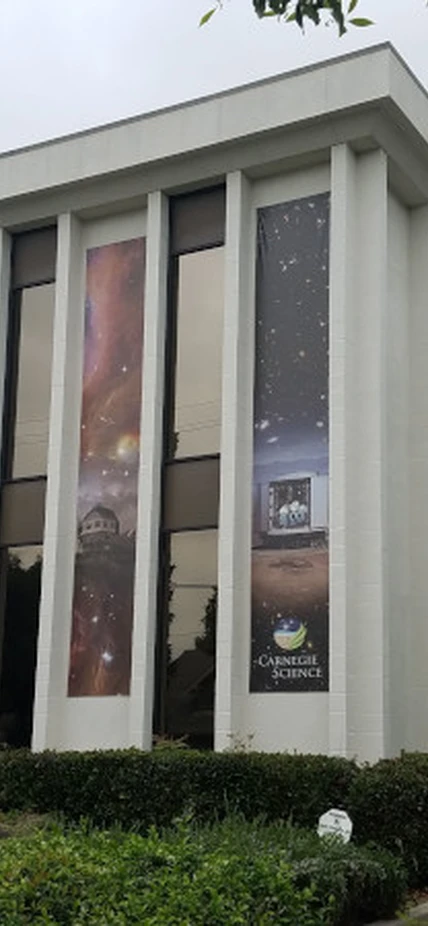Dear Friends,
This spring has been a challenging time for all of us with the emergence of the COVID-19 pandemic. Like many of you, our scientists and support staff have been working at home since mid-March. At around that same time, we also made the unprecedented decision to temporarily close down our Las Campanas Observatory in Chile.
Working remotely is familiar to all astronomers. These days, the vast majority of our work is done on laptops and we've all learned to work on airplanes, in hotels, and anywhere we can grab access to the internet. While collecting data is important (more on that below), it typically occupies only a small fraction of our time. The vast majority of our effort is expended on developing and testing models, analyzing data, and writing papers. All of this can be effectively done from anywhere.
However, an important component of being an interacting socially with other scientists. Although in the time of George Ellery Hale and Edwin Hubble astronomers often worked alone, these days most astronomers work in collaboration. It's not uncommon for some of these efforts to involve hundreds of astronomers from around the world. At Carnegie, we pride ourselves on having one of the most collaborative environments in astronomy. In addition to hosting talks by outside scientists every week, we also have several topic-specific group meetings and a daily scientific discussion where new papers and results are reviewed. While the current stay-at-home situation makes such interactions more difficult, we are doing our best to continue these important activities remotely whenever possible.
The decision to close Las Campanas Observatory was a very difficult one for me, LCO's Director Polo Infante, and LCO's Associate Director David Osip. Just last September, we celebrated the 50th anniversary of the observatory, and this is the first time in that entire period that we have had to close the telescopes for any extended period. (Remarkably, the telescopes even remained operational during the 1973 coup by Pinochet.) Several people have asked me about the impact of having the telescopes closed on our current science projects. Luckily, most change in the universe happens on such long timescales that the projects that were planned for this year can simply be rescheduled next year. The exception would be an astronomical event that occurs much more rarely, such as a supernova in our own Milky Way galaxy (a phenomenon last seen in 1604) or a very bright comet. Hopefully, the universe will hold off on events like these until we are back up and operating! There are indications that the COVID-19 situation in Chile is improving, so if luck is on our side we will be able to reopen Las Campanas in the not-too-distant future.
Unfortunately, the pandemic has also forced us to postpone all our public events. While we look forward to resuming these, I'm pleased to remind you that several seasons of our Huntington lectures, as well as the Capital Science Evening lectures held in Washington, DC, are available to stream at any time, here and here. We have also launched a new Zoom series of live presentations that will feature scientists from across the institution. I encourage you to join us and learn about the wide range of research and discovery being pursued at Carnegie Science.
Finally, I'd like to praise the remarkable work by many of our employees in support of our response to the COVID-19 pandemic. As described in this newsletter, you'll see that we have launched a number of activities to help first responders, teachers, and others who are most-directly impacted by the current situation.
Thank you as always for your support of our work, and stay safe.
Dr. John Mulchaey
Crawford H. Greenewalt Chair and Director of the Carnegie Observatories
